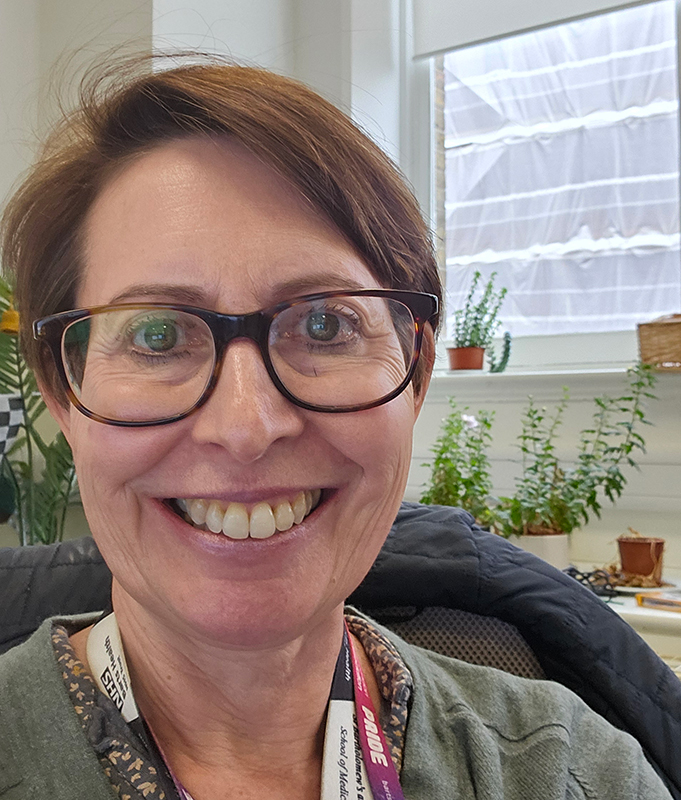A key part of university – and one that sets us up to be lifelong learners – is learning how to learn. It’s easy to assume that because our students made it through more than a decade of formal schooling and were accepted to university, they know how to learn but often it is more complex than that. University learning, with its requirements for independent study and self-regulation, and for critical, connected and interdisciplinary thinking, requires a different set of skills and behaviours that our students do not necessarily possess. We caught up with Dr Nyree Myatt, Senior Lecturer in Medical Sciences and Head of Academic Support for the MBBS, to discuss the importance of building students’ academic skills, her approach to this and how this has changed with increased availability of online learning.
Nyree explained that MBBS students in particular can often start university feeling confident about their study and revision skills – and with good reason because, as Nyree points out, ‘they’ve all done incredibly well up to that point’. However, when discussing study strategies with students, it often becomes clear that they rely heavily on cramming for tests and exams which, Nyree explained, doesn’t prepare them well for university learning for a number of reasons. First, they are simply faced with too much information to be able to cram. Second, it doesn’t prepare them to be able to quickly recall, interpret and apply that information – a vital skill in any clinical or healthcare role. Finally, it doesn’t help them to recognise the links between different topics, seeing how one idea, concept or system is connected to and integrated with others.
Nyree emphasised the importance of talking to students about how they learn and study, prompting them to reflect both on their current approaches and on how they will need to apply or demonstrate their understanding of new information. She often employs the metaphor of a toolbox, getting students to think about which study ‘tool’ or technique is best suited to the task at hand, rather than always relying on the same approach. She also suggests strategies that students might find useful: using learning outcomes as a guide to key concepts, writing summary notes to test recall and understanding, spaced recall and interleaving revision of different topics.
The increasing availability and incorporation of online learning has, from Nyree’s perspective, brought real benefits but also some unexpected challenges.
“Just having lectures recorded, it's brilliant… it means that students can go back to something that they haven't understood first time round or second time around and if they've missed it, it's no longer the case of, you know, you missed it? Missed out. You’ve got to go and speak to your friend or get the original papers or something, which is what it was like when I did my degree.”
Students can also rewind a recording to listen again to a section they didn’t quite understand. However, she explained that it can also be a double-edged sword with some students thinking that rather than attending live or in-person, they can catch up later – without a firm plan for when ‘later’ is, it’s easy for students to fall behind.
“It's fine if you if you say you've got your plan and this (lecture) will go up in a couple of hours time and this is when I'm going to watch it… But if you've not, if you don't have that discipline, then it's very easy for it to kind of get lost. And it might be that that is a sort of seminal lecture and everything else then for the rest of that module depends on it. And without that one, everything else doesn’t make sense.”
Again, discussing these opportunities and challenges with students, and prompting them to reflect on their context and behaviours, can help them develop study techniques and schedules that work for them.
One thing Nyree suggested that we can all do to help students is to highlight the links and connections between different parts of the learning experience. Part of this is about making sure the expectations and alignment of our own learning materials is clear to students. The ease with which we can post additional readings or resources on QMplus can make it tempting to add extra information to enrich or supplement core learning. But that can be overwhelming for students if it isn’t clear that this is extra information, or if we don’t explain how it fits with other learning materials: “We’ve been asked ‘do I need to learn this as well? Do I need to know this? Will this come up in an exam?’” The other part is about highlighting connections to other topics or modules and thinking about the opportunities we have to help students start to build their own connections between different ideas.
Find out more
Queen Mary’s Academic Skills Centre offer a range of workshops and resources to help students develop their academic skills. The Academic Skills Advisers and Liaison Librarians can also provide advice and guidance on how you can help your students develop their academic and study skills.
